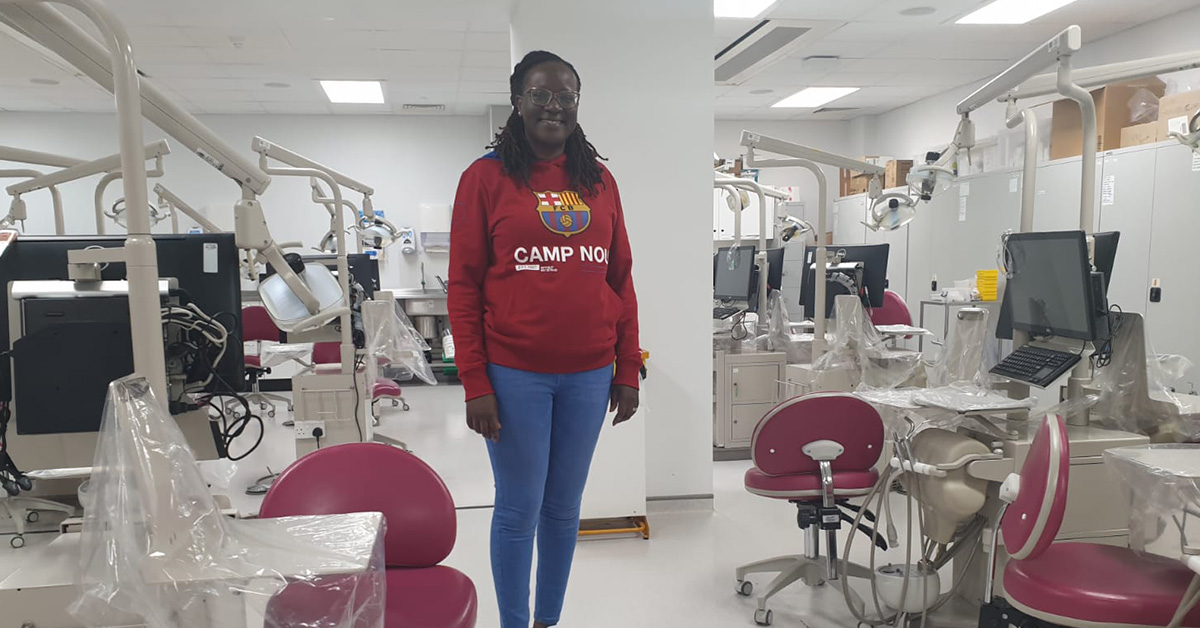In Kenya, the Oral Health Policy 2022-2030 developed by the Oral Health Department within the Ministry of Health identifies the promotion of the eco-friendly practice of dentistry as one of its objectives. A priority action area is to develop a national plan to phase down usage of dental amalgam while promoting mercury-free alternatives. To achieve this objective within the specified timeframe, the first five strategies have been adopted.
With support from CARTA through its post-doctoral awards (re-entry grant), Dr. Olivia Osiro (cohort 6 graduate, University of Nairobi) is implementing a research project that aligns with the fourth dental amalgam phase down strategy – to promote research on affordable mercury-free alternative dental filling materials. Her project is titled ‘Development of low-cost glass ionomer cements for dental restorations’.
With support to the tune of USD 50,000, Olivia intends to complete pending work from her PhD project ‘Development of a prototype for a restorative dental cement in Kenya’. Between August and November 2022, Olivia attended a short research visit as an Honorary Lecturer at the Dental Physical Sciences Unit and Barts and the London School of Dentistry, Queen Mary, University of London, where she refined the proof of concept and conducted the required experiments that included synthesis and material tests according to ISO standards for dental cements.
She is currently investigating the use of highly reactive aluminosilicate glasses mixed with soda-lime-silicate glass (bottle glass) to produce low-cost ionomer glasses. By reducing the ratio of the aluminosilicate glasses, and replacing it with bottle glass, the cost of production can be lowered by up to 60 – 80%.
The rationale behind this is that only up to 20% of the ionomer glass is involved in the setting reaction on mixing with poly (acrylic acid). Bottle glass is thought to act as a cheap filler and is readily available in all aspects of day-to-day life. The present research has so far produced working formulations of mixtures of two types of highly reactive ionomer glasses and bottle glass with reasonable working and setting times for dental applications. She is optimistic about her research project and its potential to promote the eco-friendly practice of dentistry in Kenya.
On the research project, Olivia is working with Prof David Kariuki, Department of Chemistry, University of Nairobi, Kenya as the internal collaborator, and external collaborators – Prof Robert Hill, Dr. Saroash Shahid, Dr. Natalia Karpukhina of the Dental Physical Sciences Unit, Queen Mary University of London, London, UK. The research visit enabled close interaction with the external mentors as well as an opportunity to lead a research project as a postdoc, with potential to generate a couple of master’s projects.
The CARTA re-entry grants seek to support CARTA graduates returning to, or remaining at their institutions, to undertake a research project, receive strong mentoring and learn the demands of community and public engagement. Within 2022, CARTA awarded nine re-entry grants to its graduates from a total of fifteen post-doctoral opportunities. The other six were awarded as post-doctoral fellowships.




